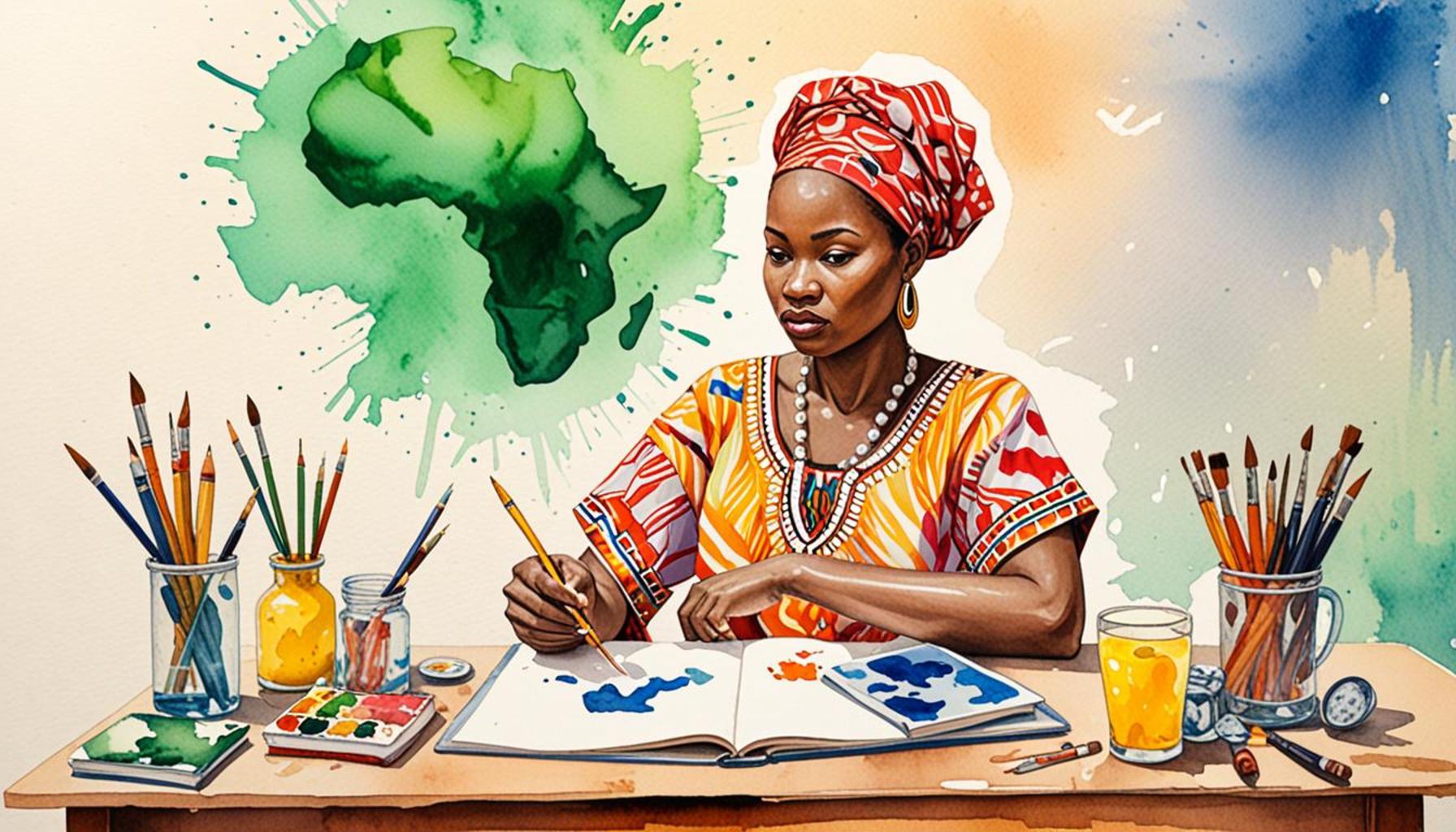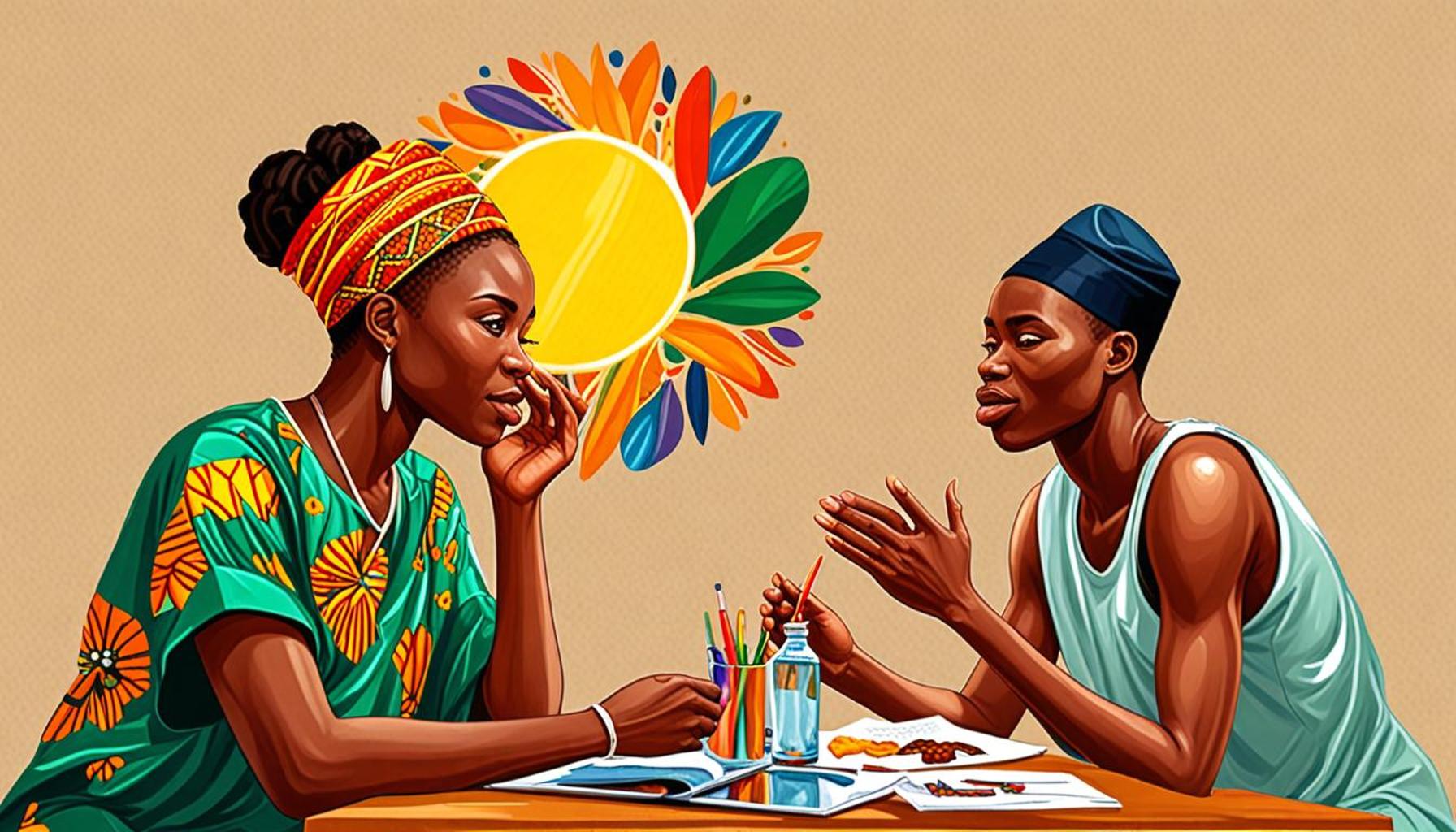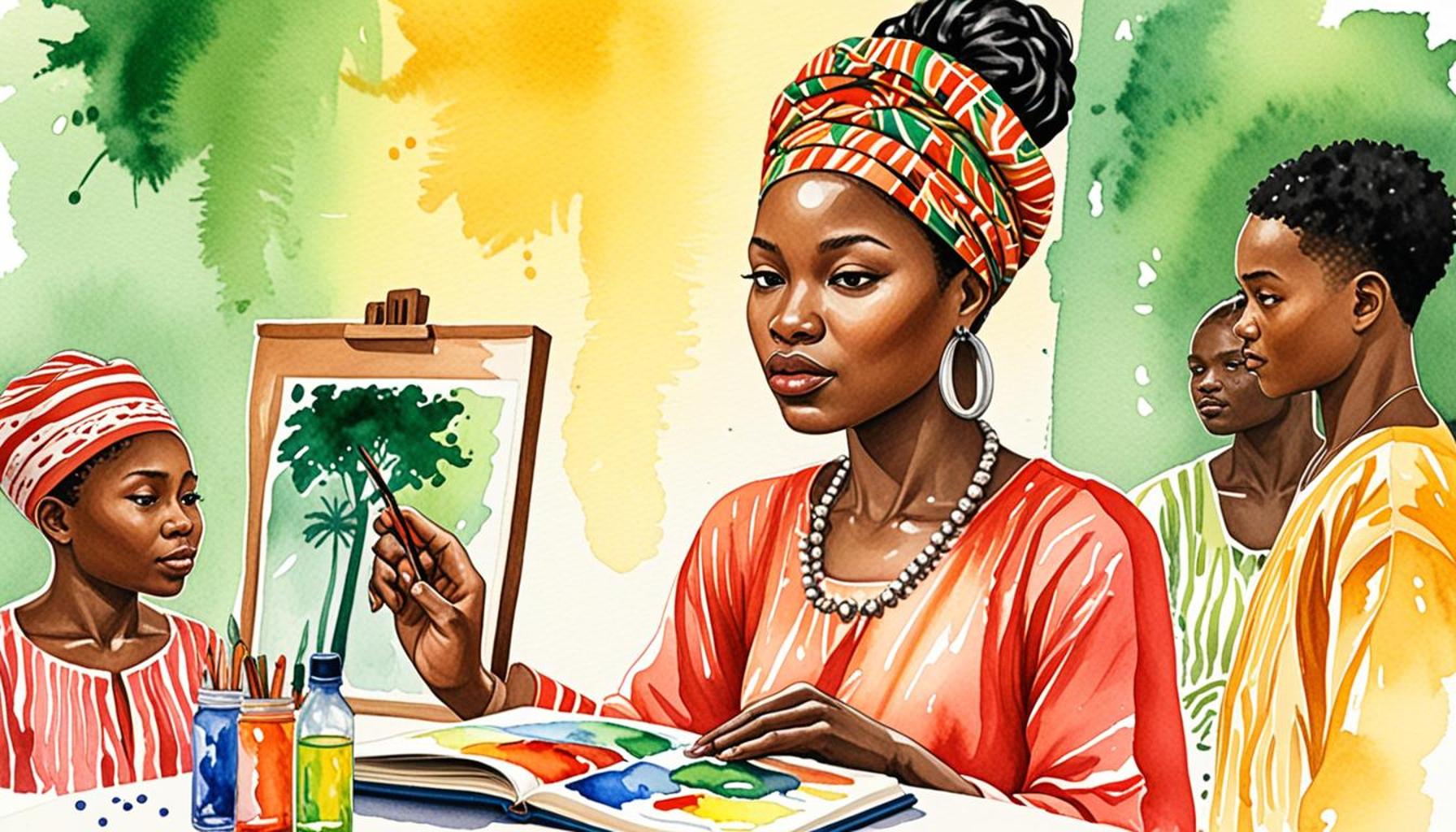How Self-Reflection Can Facilitate Adaptation to Cultural and Social Changes in Nigeria

The Importance of Self-Reflection Amidst Cultural Shifts
In the vibrant and multifaceted nation of Nigeria, the forces of globalization, technological advancement, and shifting social dynamics can lead to significant cultural evolution. As diverse ethnic groups and populations encounter one another, the experiences of individuals often become a blend of tradition and modernity. In such a transformative landscape, self-reflection emerges as an essential tool for navigating these changes and fostering personal growth.
Self-reflection can take many forms, but at its core, it serves to enhance our understanding of who we are and how we relate to the world around us. This practice can manifest through journaling, meditation, or simply taking quiet moments to ponder one’s thoughts and feelings. As individuals engage in these introspective activities, they become more adept at:
- Recognizing Personal Biases: Evaluating one’s beliefs and values against the backdrop of emerging cultural paradigms is crucial. For example, a person who grew up in a traditional Yorùbá household might find their values challenged by contemporary influences, such as the rise of digital platforms that promote different lifestyles. By reflecting on these changes, they can work towards a more balanced viewpoint.
- Enhancing Emotional Intelligence: Self-reflection fosters an understanding of emotions, enabling individuals to respond empathetically to societal shifts. For instance, as Nigeria grapples with issues like economic insecurity and political strife, being aware of one’s emotional reactions can lead to more constructive conversations about these topics rather than conflict-driven responses.
- Fostering Open-mindedness: Encouraging open dialogue through reflective practices means individuals can become more accepting of diverse perspectives. In a country with over 250 ethnic groups, embracing these differences can lead to richer interactions and a profound appreciation for the country’s diversity.
However, engaging in self-reflection is not merely an internal exercise—it has practical applications that can influence societal dynamics. Nigerians must be willing to adapt and embrace change, which can lead to:
- Engaging in Meaningful Conversations: These dialogues can bridge cultural gaps, promoting understanding amidst differences. For example, youth-led initiatives in cities like Lagos often spark discussions on social media that aim to challenge stereotypes and celebrate Nigeria’s pluralism.
- Promoting Inclusivity: By developing an understanding of others’ viewpoints, individuals can enhance social cohesion. Initiatives such as community forums can serve as platforms for people from different backgrounds to voice their concerns and ideas, fostering a sense of unity.
- Building Resilience: Navigating life’s complexities becomes markedly easier when individuals are self-aware. The ability to adapt to change allows people to see opportunities where others may perceive obstacles, a trait that is particularly important in entrepreneurial ventures in Nigeria’s bustling markets.
Ultimately, the relationship between self-reflection and adaptability is intricate and profound. Through the practice of self-reflection, individuals not only become more self-aware but also contribute positively to the evolving cultural landscape of Nigeria. As they learn to understand and embrace the changes around them, they equip themselves with the skills necessary to thrive in a rapidly changing world.
CHECK OUT: Click here to explore more
Embracing Change: The Role of Self-Reflection in a Diverse Society
Nigeria stands at the crossroads of tradition and modernity, where age-old customs meet the fast-paced reality of globalization. In this landscape, self-reflection emerges not just as an introspective tool but as a critical mechanism for individuals to adapt to cultural and social shifts. The capacity to examine one’s thoughts, feelings, and biases fosters a deeper understanding of how these elements interact with the rapidly evolving societal framework. In a nation with over 250 ethnic groups—each with its own unique cultural identity and traditions—such adaptability is paramount.
Engaging in self-reflection allows individuals to gain actionable insights into their responses to societal changes. For example, as younger generations navigate the intricate web of social media, they often encounter diverse perspectives that challenge their inherited beliefs. A reflective approach provides the space to assess how these encounters might reshape personal values and worldviews. This is especially true in urban centers like Abuja and Lagos, where cultural melting pots offer daily encounters with different lifestyles and ideas.
Additionally, self-reflection nurtures the development of critical thinking skills, which are essential in a society experiencing myriad challenges—from economic downturns to ethnic conflicts. Understanding one’s position amid these issues can empower individuals to respond constructively, rather than react impulsively. This reflective practice embodies the essence of resilience, enabling young Nigerians to transform obstacles into opportunities. For instance, in response to political unrest, individuals may channel their reflections into community activism, thus promoting social change.
Practical applications of self-reflection in adapting to cultural shifts often manifest in various benefits for both individuals and communities. Some of these include:
- Boosting Personal Agency: Individuals who engage in self-reflection often feel more empowered to enact change in their own lives and communities. This awareness leads to proactive participation in societal matters, whether through voting, advocacy, or entrepreneurship.
- Improving Interpersonal Relationships: With enhanced empathy and understanding, reflective individuals can better communicate and connect with others. This is crucial in Nigeria’s diverse environment, where misunderstandings can lead to conflicts.
- Encouraging Lifelong Learning: A reflective mindset promotes a culture of learning and adaptability. Those who continuously assess their beliefs are more likely to remain open to new ideas and experiences, which can lead to increased innovation and creativity in various fields.
In a country where tradition often clashes with modern ideologies, the practice of self-reflection can serve as a bridge to understanding. As individuals commit to this journey of introspection, they lay the groundwork for a more cohesive, adaptable society that honors both its heritage and its forward-looking aspirations. With every act of reflection, Nigerians not only cultivate personal growth but also contribute to the overall social fabric, shaping a nation that is resilient, inclusive, and ready for the future.
| Advantage | Explanation |
|---|---|
| Enhanced Self-Awareness | Through self-reflection, individuals in Nigeria can gain clarity about their values and beliefs, which is essential for navigating diverse cultural landscapes. |
| Improved Resilience | Engaging in reflective practices enhances one’s ability to cope with change, allowing Nigerians to adapt more fluidly to rapid social transformations. |
| Stronger Community Bonds | Self-reflection fosters empathy, which is crucial in building connections among diverse cultural and social groups, promoting unity. |
| Greater Cultural Sensitivity | Individuals who reflect on their own cultural contexts can better appreciate and respect other cultures, leading to more harmonious social interactions. |
As Nigeria continues to undergo significant cultural shifts, the ability to reflect on one’s identity and experiences becomes increasingly vital. Engaging in self-reflection allows individuals to confront biases and understand the multifaceted nature of their society. For instance, with the rise of globalization, appreciating the interplay of local traditions and external influences is crucial for personal growth. Moreover, self-reflection can lead to effective communication strategies, which are essential in addressing misunderstandings arising from cultural differences.Insights gained from personal reflections can inspire proactive contributions to community development, making individuals catalysts for positive change. In essence, harnessing self-reflection not only equips Nigerians to adapt to cultural changes but also empowers them to thrive within their evolving social landscapes. Exploring varied perspectives through this practice can significantly enrich the collective Nigerian experience, paving the way for a society that celebrates diversity and fosters social cohesion.
CHECK OUT: Click here to explore more
Navigating Identity in a Changing Landscape
As Nigerians grapple with ongoing cultural and social changes, the importance of self-reflection becomes increasingly salient in navigating the complexities of identity. Many individuals find themselves in a constant state of negotiation between traditional values and contemporary influences. For instance, young Nigerians may be influenced by Western cultural norms through music, fashion, and lifestyle choices that ring true in global youth culture but diverge from local customs. This can lead to an internal conflict; self-reflection allows for a deeper examination of how these elements can coexist, facilitating a more integrated sense of identity.
Moreover, the impact of migration cannot be overlooked. With an increasing number of Nigerians moving abroad for education and employment, self-reflection plays a crucial role in understanding the varying degrees of culture shock and emotional turmoil that often accompany such transitions. Through introspection, individuals can identify how their cultural heritage informs their expectations and interactions in new environments. By acknowledging their roots while embracing new experiences, they can foster a balanced identity that appreciates both their national heritage and foreign influences.
Empowering Voices Through Self-Reflection
Self-reflection not only aids in individual adaptation but serves as a powerful catalyst for collective empowerment. Social movements across Nigeria, including the #EndSARS protests, represent a profound surge in civic consciousness among the populace, particularly the youth. In these instances, self-reflection enables individuals to articulate their grievances and aspirations by thoughtfully considering the broader societal implications of their personal experiences. This critical introspection leads to more organized and deliberate actions, promoting unity and solidarity among diverse groups.
- Cultivating an Inclusive Dialogue: Through self-reflection, individuals learn to appreciate diverse perspectives, recognizing that every lived experience contributes to the collective narrative. This willingness to engage in open conversations fosters understanding and collaboration across ethnic and cultural lines, vital in a nation characterized by diversity.
- Encouraging Responsibility and Accountability: Reflective individuals often adopt a sense of responsibility to their communities and the environment. By contemplating the effects of their actions and choices, whether in sustainable practices or social justice efforts, they contribute positively to the society they inhabit.
- Promoting Mental Health Awareness: The ongoing societal pressures in Nigeria can lead to widespread mental health challenges. Self-reflection encourages individuals to assess their mental states, promoting healthier coping mechanisms and destigmatizing conversations around mental health care. As people acknowledge their struggles, the discourse shifts toward support and community healing.
The proliferation of social media has also changed the dynamics of self-reflection, providing a platform for personal narratives to flourish. Nigerians, especially the youth, utilize these platforms not just for expression but as a means of self-discovery. By sharing their stories, they invite critical feedback, fostering a reflective community that can enhance collective awareness about cultural and social dynamics in Nigeria.
Ultimately, engaging in self-reflection equips individuals with the tools necessary to navigate and adapt to a rapidly changing world, grounded in a strong sense of cultural identity. As Nigerians confront the dual forces of globalization and local tradition, the interplay between introspection and active participation in societal discourse will shape a future that is resilient and enriched by its diverse threads.
LEARN MORE: This related article may interest you
Conclusion: Embracing Change Through Self-Reflection
In the face of rapid cultural and social transformations, self-reflection stands as a vital tool for individuals and communities in Nigeria. As the nation navigates the delicate balance between tradition and modernity, personal introspection empowers individuals to forge identities that honor their roots while embracing new influences. This process not only facilitates personal adaptation but also enriches the collective consciousness of the society, creating a mosaic of experiences and perspectives that reflect Nigeria’s diversity.
The rise of social movements like #EndSARS has showcased the potential of self-reflection to galvanize civic engagement, allowing voices to unite in pursuit of justice and equality. By contemplating their own experiences and emotional responses, Nigerians can contribute to a broader dialogue that recognizes various dimensions of identity and community. Moreover, as individuals engage in this reflective practice, they begin to nurture empathy, understanding, and responsibility—qualities essential for fostering communal harmony amidst diversity.
Furthermore, the mental health implications of societal pressures necessitate a culture of self-reflection as an essential aspect of well-being. Encouraging open conversations about mental health and coping strategies can lead to community healing and resilience. By prioritizing self-awareness and collective support, Nigerians can navigate the complexities of modern life without losing sight of their cultural heritage.
Ultimately, self-reflection serves as a compass in the journey of adaptation, guiding individuals towards a future that is not only responsive to change but also deeply rooted in a rich and diverse cultural landscape. As Nigerians continue to weave their stories into the fabric of society, the act of introspection will undoubtedly illuminate paths toward growth, unity, and understanding.


